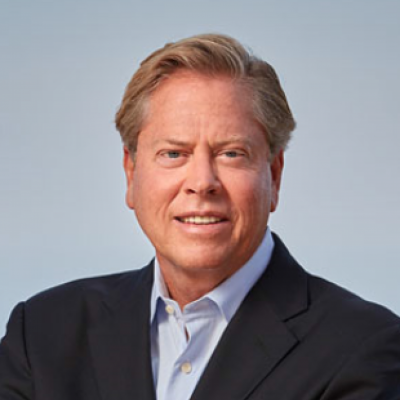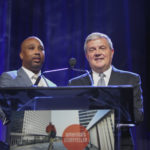By David McCann
CFO, February 8, 2018 —
The now-effective CEO pay ratio rule is just the latest reminder of the divergent employment experiences of top executives versus the rank and file. Among companies that filed their 2018 proxy statements by Feb. 1, CEOs earned an average 140 times more than their median-compensated employees, according to compensation research firm Equilar.
However, that doesn’t mean high-ranking executives are always better at managing their careers or positioning themselves for next steps. So says Gary Burnison, a former CFO who is the chief executive of recruiting, talent development, and organizational strategy firm Korn Ferry.

He spoke with CFO in advance of the Feb. 13 publication of his new book, “Lose the Resume, Land the Job.”
“From recent college graduates to Fortune 100 CEOs, I’ve been blown away by how naïve people are about finding a new job,” Burnison says. “People think the résumé is 90% of the job search, when in fact it’s only 10%. People do more research buying a washing machine than they do figuring out what kind of culture they want to work in, what kind of boss they want to work for, and what kind of company they want to work for.”
When someone embarks on a job search, it’s “automatic” that they start with the résumé, he adds. “They think a lot about what verb to use here and what adjective to use there, and before you know it three hours have gone by and they’ve written a couple sentences. Then they become frustrated and decide to do it next week.”
Rather than focus so much attention on the résumé, job seekers should think harder about their social media presence, how they plan to work with recruiters, and how they will interview for positions, Burnison says.
Senior finance executives are certainly not immune to such failures and foot-dragging, However, according to Burnison, they have less of an excuse than other executives, given the transportability of their skills to different industries and sectors.
That’s especially true right now, he says. “There will be a recession. It’s definitely coming. So if you’re not in something you think is going to get you to your end game — assuming you’ve penciled out an end game — why wouldn’t you do it now?”
But top finance executives actually may be more complacent than others. Surely, they may believe, if they can executive complex finance strategies, they can easily do something “simple” like find a job anytime they want.
The problem is, finance types are not necessarily the best self-marketers, Burnison observes. “They’re more about keeping their head down and getting the job done,” he says. “Things are black and white, debits or credits. But [finding a job] is all about marketing your personal brand.”
There’s no magic trick that enables effective self-marketing. It involves these straightforward steps:
- Figure out what gets you excited and motivated. If you haven’t undergone a professional assessment of that, do so.
- Think about what you want to accomplish in your career. Do you want to be a treasurer? A CFO? Even a CEO?
- Think about what industries and sectors, and within them what specific companies, you would like to work for in that capacity.
- Proactively target those companies and figure out a way to get a “warm introduction” to them. It doesn’t matter if the position you want isn’t open. “I’m always looking for talent,” Burnison says. “All CEOs are.”
Stopping short of that fourth step is where many people go wrong, says Burnison. “Don’t wait for something to come along. If you want to work at a casino, take control. If a casino is looking for a CFO, guess where they’ll look first? At other casinos. They’ll be looking for that square peg, but they may be better off with your octagon.”

Gary Burnison
It’s a path Burnison followed himself. He was a partner at KPMG in the late 1980s and early 1990s. Then he went into investment banking for a few years, after which he became CFO of a dot-com upstart that burst in the 2000-2001 bubble.
His next move was contacting Korn Ferry. “They didn’t call me. I called them,” he says. “The reason was the firm’s culture.” He was invited aboard as CFO in 2002 and moved up to CEO five years later.
“You have to be where you are motivated and excited, because that’s going to show in your performance,” he adds. “You may have an IQ 20 points higher than someone else, but that’s probably not going to be the differentiator.”
Nor, in all likelihood, will your résumé. Of course, despite the title of Burnison’s book, you have to prepare one, and it should be of high quality. “But if you’re sincerely trying to get a job that way, you might as well go down to the 7-11 and buy a scratch-off ticket,” he concludes.












